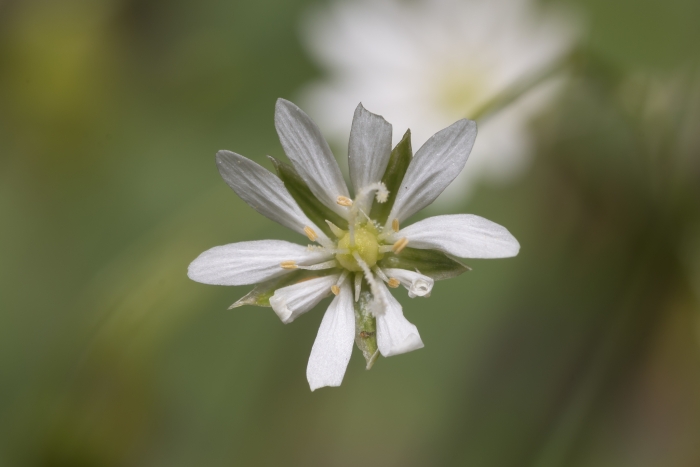Longleaf Starwort
(Stellaria longifolia)
Longleaf Starwort (Stellaria longifolia)
/
/

© Eleftherios Katsillis
CC BY 4.0
Image By:
© Eleftherios Katsillis
Recorded By:
Copyright:
CC BY 4.0
Copyright Notice:
Photo by: © Eleftherios Katsillis | License Type: CC BY 4.0 | License URL: http://creativecommons.org/licenses/by/4.0/ | Uploader: eleftherioskats | Publisher: iNaturalist |

























Estimated Native Range
Summary
Stellaria longifolia, commonly known as Longleaf Starwort, is a rhizomatous perennial herb that is native to a variety of moist habitats including wet meadows, stream banks, and marshy areas across the northern hemisphere, particularly in northern Europe and North America. It typically forms dense clumps with sprawling, branching stems that can reach lengths of up to 18 inches (45 cm). The stems are mostly hairless, with tiny rough hairs along the edges. The linear to lance-shaped leaves are up to 1 inch long, oppositely arranged in pairs, and have a fresh green color. From late spring to early summer, Longleaf Starwort produces an inflorescence bearing several small, star-shaped flowers. Each flower features five green sepals and five deeply lobed white petals, which are quite showy when in full bloom.
Longleaf Starwort is valued for its delicate appearance and its ability to thrive in moist, shaded conditions, making it suitable for water gardens, rain gardens, and naturalized areas. It prefers consistently moist soil and can tolerate partial to full shade, which makes it a versatile plant for gardeners dealing with wetter areas where other plants might struggle. While it is not commonly used in formal garden settings, it can be an attractive addition to wildlife gardens, as it provides nectar for pollinators. Care should be taken to control its spread in cultivation, as it can become invasive in some conditions.CC BY-SA 4.0
Longleaf Starwort is valued for its delicate appearance and its ability to thrive in moist, shaded conditions, making it suitable for water gardens, rain gardens, and naturalized areas. It prefers consistently moist soil and can tolerate partial to full shade, which makes it a versatile plant for gardeners dealing with wetter areas where other plants might struggle. While it is not commonly used in formal garden settings, it can be an attractive addition to wildlife gardens, as it provides nectar for pollinators. Care should be taken to control its spread in cultivation, as it can become invasive in some conditions.CC BY-SA 4.0
Plant Description
- Plant Type: Herb
- Height: 1-2.5 feet
- Width: 0.5-1 feet
- Growth Rate: Moderate
- Flower Color: Green
- Flowering Season: Spring, Summer
- Leaf Retention: Deciduous
Growth Requirements
- Sun: Part Shade, Full Shade
- Water: High
- Drainage: Medium, Slow
Common Uses
Border Plant, Low Maintenance, Water Garden
Natural Habitat
Native to wet meadows, stream banks, and marshy areas across the northern hemisphere
Other Names
Common Names: Long-Leaved Starwort, Longleaf Stitchwort, Longleaf Chickweed
Scientific Names: , Stellaria longifolia, Alsine friesiana, Alsine longifolia, Micropetalon gramineum, Spergulastrum gramineum, Stellaria atrata, Stellaria atrata var. atrata, Stellaria atrata var. eciliata, Stellaria diffusa
GBIF Accepted Name: